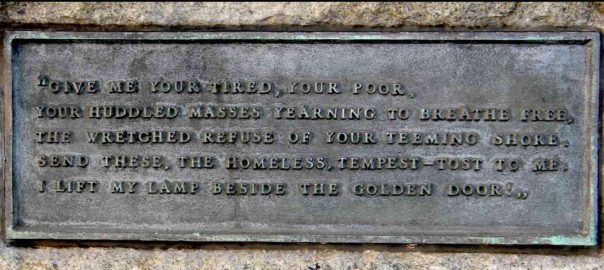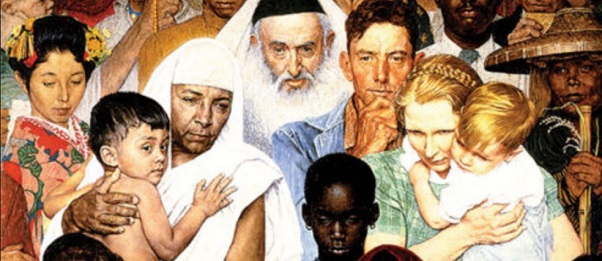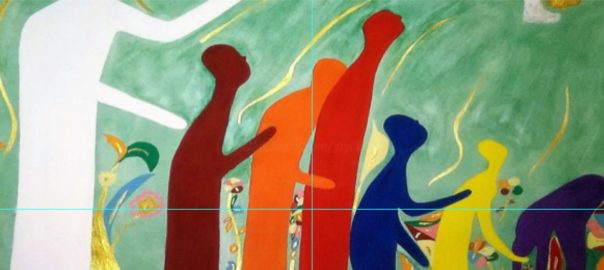
The immigration history of the USA includes much prejudice and xenophobia, punctuated by moments of hope and inclusion. During the height of Ellis Island’s embrace of millions (1880s-1910s), Chinese immigrants in California were imprisoned, oppressed, and subject to severe restrictions if they did manage legal status. Heartening narratives of religious and social freedom are unfortunately concomitant with nativism and racism. Maryland was founded in the mid-17th century as a Roman Catholic refuge. By the 1840s, there were anti-Catholic riots in response to the influx of Irish survivors of the potato famine in their homeland. The open doors of the late 19th and early 20th century became the sealed gates of the 1920s to 1940s, with Jewish emigres severely restricted at the height of the Nazi genocide.
Legislation in the 1960s opened the floodgates, with a confusing array of regulations that allowed an influx of students, workers (temporary and permanent), and refugees. At present, some have to wait years for a pathway to citizenship while “undocumented” residents, DACA recipients and others are the recipients of much favor and financial support. The US-Mexico border and adjacent facilities are overwhelmed with people. On the political front, both parties want a steady stream of new arrivals for their economic and political purposes. A large majority of American citizens want reasonable regulation joined with compassion. When the President details the lawbreaking and subversive activities of some at the border, he and his supporters are vilified in the name of compassion. The deep concerns of many concerning racism and oppression of the poor must not be dismissed. Neither party has placed legislation before the White House that ensures hospitable and secure pathways.
Leaving aside the extremes of racial nativism and complete open borders, there are ways forward involving principled compromise…if love is understood properly. Open borders in the name of compassion may involve a loving attitude, but agape love looks at the long-term and will foster equal justice for all. Borders and citizenship are positive principles for a society built on personal virtue and the rule of law. Reasonable security is not the absence of love and regulating the influx of new residents is not the opposite of compassion, but stewardship of resources and institutions.
Agape love can transform the current debate by unmasking the motives and methods of current policies. Families should be kept together and given reasonable time to be heard. But thorough vetting will protect the nation from criminal elements. Agape love is sometimes “tough love” that avoids creating generations of welfare dependents and residents that refuse any assimilation into the values and vision of a pluralistic society. Agape love considers all facets of social flourishing and fosters structures of inclusion and wisdom. Agape love also helps people make friends across cultural divides and offers uniting virtues that help citizenship be unity-in-diversity.
Immigration reform is not an unsolvable problem, if unselfish love guides policy. Alas, greed and power often overtake true love. Future generations deserve better, as we welcome people from every corner of our world to help our nation flourish.




